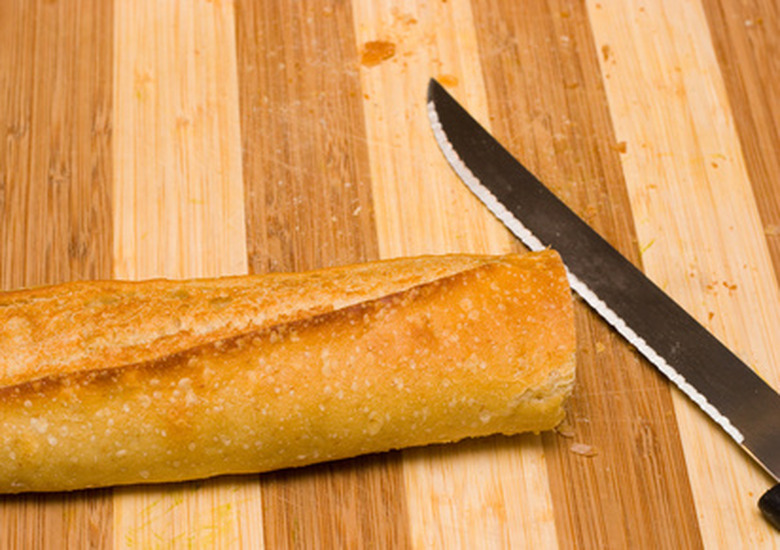The Best Knives That Don't Need Sharpening
Certain knives are often marketed as never needing sharpening. The idea, unfortunately, is too good to be true. With constant use, the edge of any knife — whether serrated, ceramic or sprayed with a metallic coating — will become bent, chipped or jagged. The knife may still work, but it will probably tear or shred food rather than cut it smoothly. Nevertheless, if you are aware that you have not found the holy grail of knives, knives that "never need sharpening" can be a good deal. Ironically, the trick is to look for one that you can actually sharpen.
Serrated Knives
Serrated Knives
The most common type of knife sold as one that won't need sharpening has a serrated edge, like a saw blade. The jagged teeth of these knives will cut even when they are dull, which makes them a good choice for cooks who don't like the constant maintenance required by some other types of knives. But contrary to a marketer's spiel, these knives do get dull over time. Fortunately, most serrated knives can be restored to close to their original condition quite easily at home with manual or electric sharpeners made specifically for the task, according to Chef's Choice. Steve Bottorff, at Sharpening Made Easy, recommends looking for serrated knives with flat ground backs and only four or five regularly spaced serrations per inch.
Ceramic Knives
Ceramic Knives
Ceramic knives, made of a high-tech ceramic called zirconia, have only recently been introduced to the knife market. Manufacturers claim that these knives, made of a material that is second in hardness only to diamonds, will maintain their extremely sharp edge for life. Zirconia was originally developed for industrial uses where metallic products failed, and it is a wear-resistant and chemically inert material, meaning the claims about the edge never getting dull are true. However, many users complain that ceramic knives, which are generally pricier than metal knives, have extremely fragile edges that chip quite easily. Because the sharpening process is fairly technical, they generally need to be returned to the manufacturer for sharpening when this happens. Cooking Cache recommends buying ceramic knives from its leading manufacturer, Kyocera.
Knives Treated With Hard Metals
Knives Treated With Hard Metals
Some knife edges are sprayed with hard metals, such as tungsten carbide, that are supposed to keep the blade sharp over time. Unfortunately, these metals are also very brittle, according to Chef's Choice. They will generally chip off within a matter of months, creating a jagged edge that will cut much like a serrated knife. Because the metals used on the edge are so hard, they cannot be sharpened by home sharpeners and must be returned to the manufacturer for sharpening.
